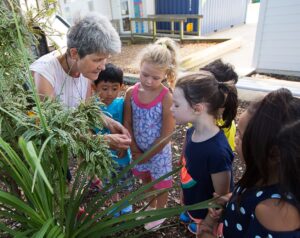Home learning in the junior school
By Rose Stanley on April 28, 2020 in Student agency
What do our littlest learners really need?
Over the last couple of months it seems there has been a tsunami of information, advice and resources available for teachers as they navigate a new way of schooling from a distance. New Zealand and overseas social media and educational websites have been full of the great and sometimes aspirational things happening for learners in their homes. Amongst the plethora of information available, however, there hasn’t been a great deal about what the junior primary classroom teacher could be doing for their learners from a distance. Why is that?

A typical new entrant classroom is a place full of activity, wonder and discovery. There is colour, action, noise, chat and laughter as little minds learn from experiences, from each other and from a special relationship with their teacher. The teaching and learning that takes place in an effective junior classroom requires deep knowledge of what the learner can do, could do, and what the best next step is for each one – minute by minute and usually at a fast pace. These teachers are at jellybean tables, teaching stations and on the floor, tuning in to the connections that are constantly being made during explicit teaching. They are already adapting tomorrow’s maths, reading or shared writing lesson in their heads while supporting the current learning. Teaching in this environment is rewarding and marvellous, where highly skillful teachers are literally right beside children as they help them make sense of the world around them. This kind of teaching and learning relies on physically being side by side and face to face. This kind of teaching simply cannot happen by distance.
While teachers of older students are ‘Zooming’ and using interactive online tools to collaborate, give specific feedback and extend thinking, teachers of young learners are relying on the adults in the home as their eyes, ears and hands. This is where it gets tricky. Every home situation is subject to different dynamics, stresses and resources. Teachers are not expecting parents to have the pedagogical knowledge and skills to explicitly teach their children. Effective teachers are trained and experienced in what to notice and recognise, which then informs their practice.
The key messages for teachers of this age group is to follow the advice of well known psychologists who advocate for as calm and stress free home environments as possible. We know that learning is not linear and that children will be learning in a different way while we are in lockdown. When learners come back to school, teachers can continue from where they currently are, and hopefully build on the more holistic view of learning they have experienced at
What you can encourage:
An environment that allows for discovery, wonder, imagination, creative play.
Oral language where students engage in conversation, new vocabulary, saying what they are thinking.
Being read to or have stories told to them regularly.
Opportunities to strengthen their home language.
Prioritising health, physically and mentally.
What you shouldn’t worry about:
Sending home ‘drill and kill’ activities where learners are learning sounds and words in isolation.
Reading wedge graphs – it won’t matter in the slightest, in the long run, if there is some plateauing there.
Assessments – we know the most effective assessment is formative, where you are adjusting your teaching from day to day, lesson to lesson. You can’t do this at the moment and that’s ok.
The misconception that students could be ‘falling behind’. Learning is more of an adventure park full of finding out, trialling, practicing, responding to feedback. It is not a running race where the fastest, highest or most, wins.
Comparing yourself to the fantastic distance teaching that might be happening in other parts of the school.
What you could do:
Send home familiar reading books if you are able.
Connect via video if possible – for them to see your face and feel that you still think they are the most important thing in your life!
Provide some suggestions for flexible activities with no obligation to do them or to present these to anyone else.
Reassure parents that a few months of a different kind of learning will not have a detrimental effect on their child’s ultimate academic achievement.
Other articles you might like
Voices of parents of Māori and Pasifika students
Where to start? What and how much do we need? Questions schools are asking about Literacy support.
Ko Whakapunake te maunga
Ko Te Wairoa Hopupu Honengenge Matangirau te awa
Ko Takitimu te waka
Ko Taihoa te marae
Ko Ngati Kahungunu ki Wairoa te iwi
I tupu ake au ki Uawa
Ko Kerry ahau
Kia ora koutou. I'm Kerry Tetupu and I have very recently joined the team at Evaluation Associates | Te Huinga Kākākura Mātauranga.
